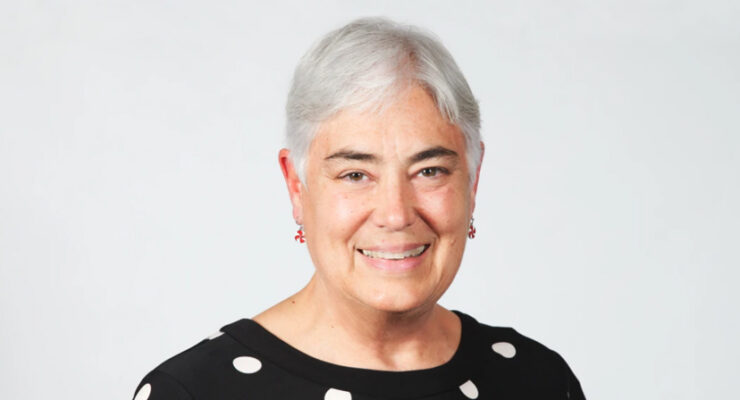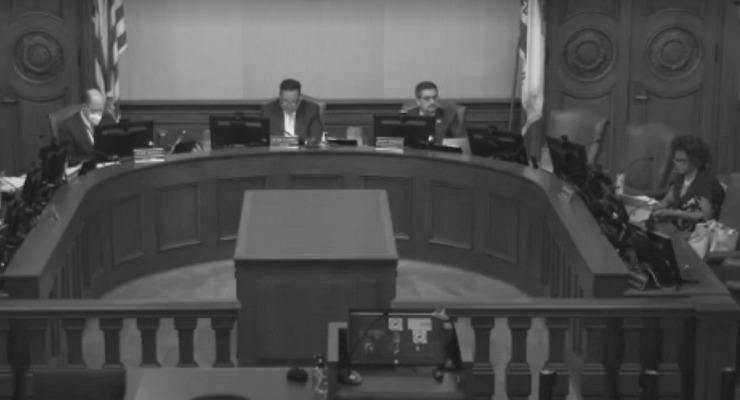City health officials who last month ordered the end of a local nonprofit’s annual Thanksgiving and Christmas feeding of thousands of needy people with home-prepared food donations after they ruled it violated health codes say the situation is a “social justice†issue.
Supporters of Union Station Homeless Services’ decades-old traditional Dinners-in-the-Park were shocked and many were angry when the nonprofit was ordered by the Pasadena Public Health Dept. last month to stop its practice of accepting home-cooked food contributions by area residents who would drive by Memorial Park and hand off tins and platters to volunteers during the events.
“This is one of the true holiday traditions that has not gotten mucked up by the forces that tend to do that, so, when I received this email from Union Station Homeless Services, I was shocked and then furious,†Pasadenan Susan Osen wrote in an email at the time.
Dr. Eric Walsh and Lisa Frias of the Pasadena Public Health Department sat down to discuss the controversial ruling last week as the Christmas Day Dinner-in-the-Park approaches.
Both said the Dept. is charged with protecting the health of every individual, wealthy and homeless alike. At a public event feeding 4,000 people, they want to ensure the food being served would meet the same standards a person eating at a restaurant in Pasadena would expect.
“We believe that everyone deserves the same quality of public health protection and that’s one of the reasons why we’re pretty strong in support of this. It is the California Retail Food Code that makes this requirement,†Walsh said.
Union Station has hosted the Dinner-in-the-Park for the last 41 years, every Thanksgiving and Christmas Day.
When newly hired Environmental Health Division Manger Liza Frias first heard about the public event accepting home-cooked food, she immediately suspected the event was in conflict with the California Retail Food Code.
Frias’s long history in food safety expertise, including drafting the food code, she said has made her particularly passionate about this realm of public health.
“I want to make sure that the food that they’re getting is the food that we would give to anybody else,†Frias said.
Dr. Walsh added that the home-cooked meals were only a small portion of the meal that is mostly made by the certified Union Station kitchen staff.
“It’s a social justice issue. We will not tolerate that people with means in any jurisdiction eat this given food without any idea how safe it was, right? Why would be expect a different level of accountability for homeless people, for poor people?†Walsh said.
It must be noted that the policy has not in any way changed and the public health department did not seek to come in and “arbitrarily†shut down the operation.
“There was an anomaly that we were allowing it and once we found out about it we said, we can’t keep doing this because we don’t want someone really getting sick,†Walsh said.
Walsh explained that although many said no one had reported being sick from the event, the homeless population is a vulnerable population.
“Many of them won’t have health care. They’re also oftentimes a lot less likely to report things. You really don’t want to put them in an environment where there might be more access for food-borne illness. They can have much greater consequences without the resources to actually be able to deal with the consequences,†Walsh said.
Frias said the likelihood of becoming sick from food is very high, many people simply do not realize they have contracted a food borne illness because it quickly passes without severe consequences.
“One in six people today are ill by eating food out there. Those numbers are actually not even really valid numbers because the reporting is not there. We’re not seeing the report, so it’s not to say that nobody’s never gotten sick. We really don’t know that,†Frias said.
In a conversation with a constituent Frias was asked if feeding the home cooked food was better than the homeless eating out of the trash.
Frias replied, “You know what? It’s exactly because of that. We owe them the same level of protection that I would offer you.â€
She added, “Unfortunately nowadays, we have no idea whether or not we may have a disgruntled person out there that wants to get rid of all the homeless people and decides, ‘You know what? I’m going to throw some rat poison in there.’â€
“That’s what I’m charged with — to protect the public and so we have to take those kind of things into consideration. Yes, 99% of the population out there wants to do the right thing, but we have to protect them from that 1% that, God forbid, something happens,†Frias said.
Many options are still available to those wanting to donate time, food or money. Frias said next year the health department will work with Union Station to provide a way for people to either bring their recipe in for others to make on their behalf, or set up a certified kitchen space for families to come cook together for the event.
“We don’t want people to stop giving. That’s not the point. We definitely don’t want them to stop doing this. It’s a beautiful event, so we don’t want it to stop either clearly. We said we want to make sure that they can feel confident that the food was prepared properly,†Walsh said.
The public is also invited to contribute in the following ways:
1) Donate Non-Perishable Food: Visit http://bit.ly/1iQ3a5q to see our Christmas Wish List, and help us gather everything we need to make a great meal. Note: Due to Health Dept. regulations, we may no longer accept home-cooked turkeys, side dishes, or desserts.
2) Donate Funds: Union Station serves more than 166,000 meals each year, and provides a full array of services to help people rebuild lives. Invest in transforming a life today: https://unionstationhs.org/help/donate/?program=dip/
3) Donate a Pie: You can help two nonprofits at once! Purchase a pie through the Village Cookie Shoppe and you will also be providing valuable work experience to individuals living with mental illness. Visit http://bit.ly/1bxuI9X
4) Become a Corporate Sponsor: Invest in our community and receive signage in the park by sponsoring Dinners-in-the-Park. Call (626) 240-4567 today. Current sponsors include Morongo Band of Mission Indians, Southern California Edison, Goldstar, Unified Grocers, Smart & Final, Sir Michael’s, Laborers’ Local 777, Pasadena Federal Credit Union, Paul Hastings, Pasadena Now, Valley Food Bank, Home Street Bank, Gonzalez Goodale Architects and Tsutayo Ichioka & Satsuki Nakao Charitable Foundation.
5) Volunteer Slots Are Full for this Event: Please check our website back after Jan. 1, 2014, for general volunteering opportunities in the coming year.














 0 comments
0 comments


